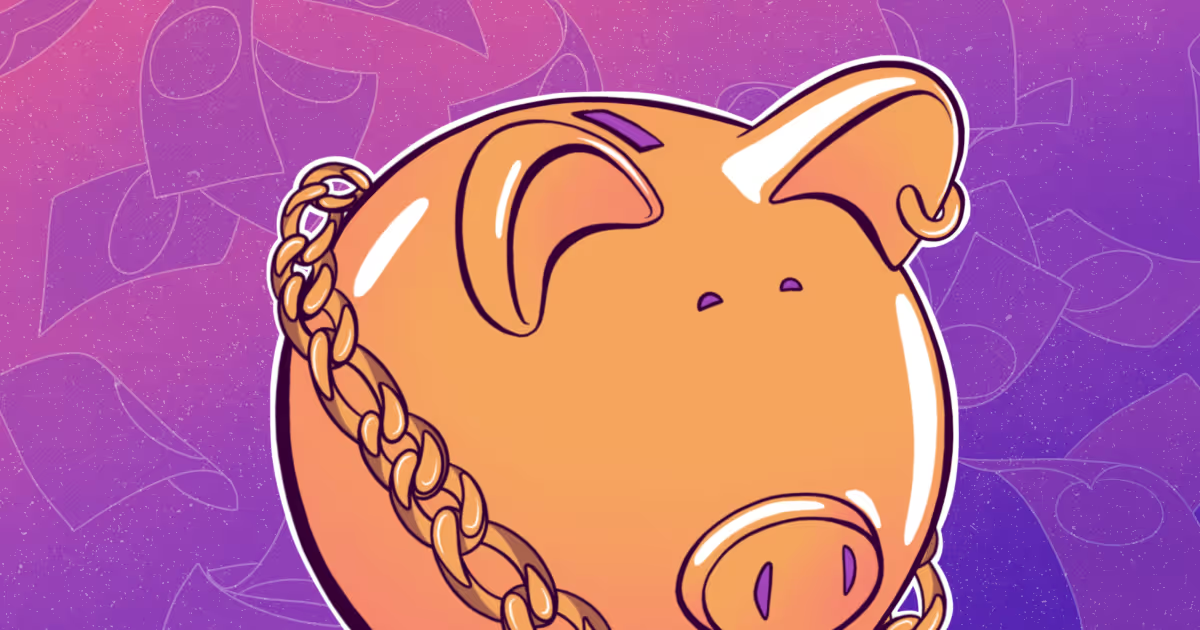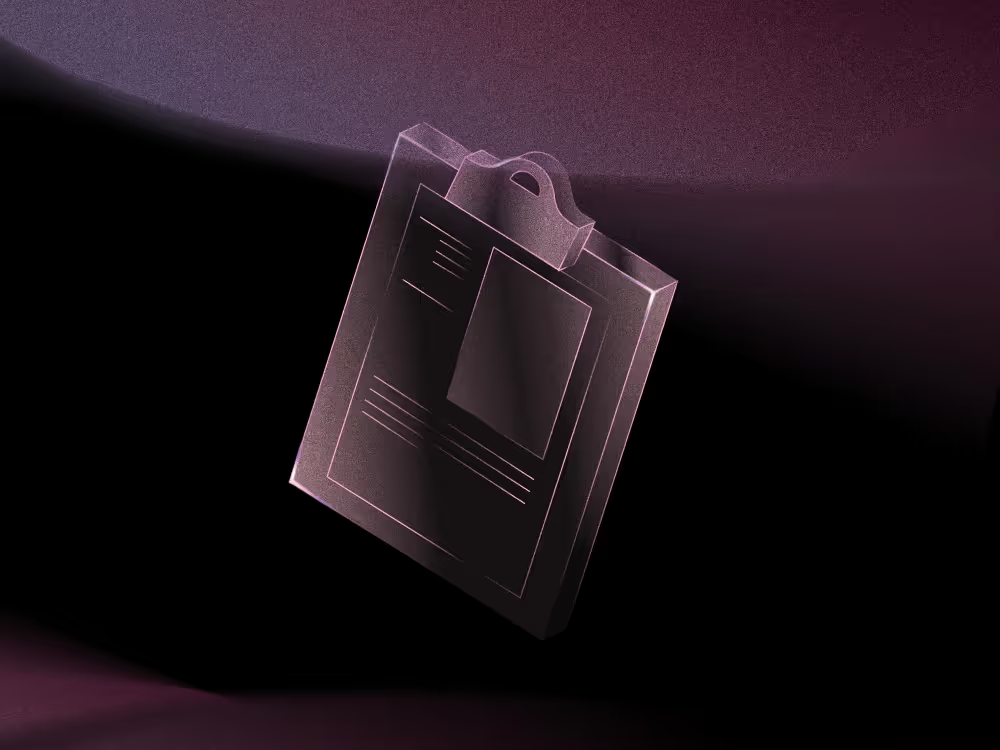Switching your ISA account to a new provider can land you better rates on your cash, new investment possibilities, and new ways to manage your money.
ISAs are a great way to make your money work hard, as your annual £20,000 ISA allowance lets you grow your savings and investments without paying taxes on your gains, income, and interest.
In fact, ISAs are such an important part of your personal finances that you may consider transferring your account for a better deal. You don’t even have to transfer your entire ISA, so you could split your savings between different providers.
Fortunately, moving your ISA savings to a new provider is a relatively simple process. Check out some of the most popular reasons to switch and our step-by-step guide to make sure your transfer goes smoothly.
Why transfer your ISA?
Some of the most common reasons for ISA transfers are:
- Lower fees at another ISA provider
- Better interest rates
- More investment choice elsewhere
- Another ISA platform is easier to use
- Customer service is more responsive and convenient for your needs (in-app chat, phone)
- You want to keep all your ISAs (old and new) under one roof
- You want one platform for all your investment accounts (SIPP, stocks & shares ISA, GIA)
Whatever your reason, it's important to make sure an ISA transfer is right for you before making the move. Switching to another provider may not secure you a better rate or otherwise improve your savings. Always do your own research and be sure to check any exit fees or loss of benefits from your current provider before choosing to transfer.
How to transfer an ISA: Step-by-step guide
1. How to research new providers
You might already have a new ISA provider in mind, but if not it is important to do your research.
Picking the right ISA will be different for different people. We’ve outlined the main reasons why people choose to transfer their ISA, but the key thing is to think about how those factors align with what YOU want.
If you like managing your money on the go, look for an account with a top mobile app. If you are looking for access to more investments, try a provider that offers the asset classes you are interested in. If cash is king for you, look for a cash ISA savings account with a great interest rate.
Remember, the grass is not always greener. Make sure to check you won't be considerably worse off by transferring by looking at the fees and charges.
While lower fees may be your reason for transferring, double-checking the difference in ongoing costs once more can't hurt. Take a look at trading fees, ongoing account charges and any service fees that might be lurking behind those attractive upfront costs.
2. Decide how to transfer your ISA
There are two routes to an ISA transfer. Some people prefer to transfer their ISA and stay invested - which is called an ‘in specie' transfer. You can also choose to sell your investments first and transfer the proceeds as cash.
In the first instance, your investments are transferred from one provider to another as is. They aren't sold and bought again on the other side. You might choose this option if you're worried about losing out on potential returns.
If you'd like to transfer your ISA and stay invested, before starting to fill out the transfer form, it's important to check whether your new ISA provider can hold your investments. A full list of the investments available to hold in a Freetrade account is available here.
3. What details do you need to transfer an ISA?
We've all given the wrong phone number as a decoy once (or twice). But when it comes to a smooth ISA transfer service, the less coy you are, the better.
If you don’t have an ISA waiting ready to receive your transfer, you will need to open a new one as part of the transfer process. Here is a rundown of the details you may need to transfer an ISA:
- Personal information: Such as your date of birth, national insurance number and personal address.
- Old ISA information: Your previous ISA account’s sort code, account number and associated provider.
- New ISA information: The sort code and account number of your new account.
- Transfer information: Details of how much you want to transfer, and when you want the transfer to take place.
Get these details ready before you start applying to make the transfer process as smooth as possible. Otherwise your application could remain half-complete on your to-do-list for weeks.
4. How much should you transfer to your new ISA?
As noted above, one aspect of your application is deciding how much of your old ISA to transfer.
Your instinct might be to transfer all of your old ISA savings into a new account. After all, moving everything across will save you the trouble of keeping tabs on multiple accounts and could allow you to maximise returns through compounding.
However, some reasons it can be worth splitting things up include:
- Staying diversified. Ensuring you have a spread of assets ensures you can be more flexible and insulated against some price fluctuations. For example, you might wish to keep short term savings in a cash ISA.
- FSCS protection. The Financial Services Compensation Scheme (FSCS) will reimburse deposits of up to £85,000 if an eligible provider goes out of business. You could be eligible for compensation if your ISA provider goes bust, though bear in mind the FSCS does not protect you in cases of poor investment performance. Even so, splitting your cash and investments across different providers can afford you more protection.
- Testing the water. You might be unsure about committing to a certain new ISA product until trialling it for a while. For example, if you are new to investing, moving all your savings into a stocks and shares ISA might be jumping the gun.
- Unsupported investments. Some investments you hold in your old ISA might not be transferrable to your new account.
5. How much does an ISA transfer cost?
Transferring your ISA could cost money.
Platform exit fees are rare, but it is still worth checking the terms of your old account before making the leap. Transferring certain types of assets might also incur fees, so make sure to check your old provider’s charges or you might get a nasty surprise.
There are other ISA terms that could cost you money.
For example, transferring out of a fixed-rate cash ISA before the full duration of its term will mean you miss out on any earned interest.
Lifetime ISAs (LISAs) are characterised by the 25% awarded on top of the cash you manage to save in them. However, if you transfer a LISA into a different type of ISA, you will usually be charged a 25% withdrawal fee.
So, before you hit the red button and transfer, make sure you understand any fees or penalties you might incur.
6. Sit back and relax
Once your ISA transfer is underway, the only thing to look out for is a message from your new provider, telling you it's complete.
Keep the standard transfer time frames in mind.
Cash ISA transfers are usually completed within 15 days, while other types of transfer are generally over the line within 30 days.
Transfer your ISA to Freetrade
It's simple and free to transfer many types of ISA accounts to Freetrade.
If you decide to move, you can open a stocks & shares ISA account as part of our Basic plan with no monthly fees, the Standard plan for £4.99/mo or our Plus plan for £9.99/mo. Plus, it also includes a self-invested personal pension (SIPP). Other charges apply.
How to transfer your ISA - FAQs
Which types of ISA can you transfer?
You can transfer, and transfer between, the following:
- A stocks and shares ISA
- A cash ISA
- An innovative finance ISA
Transferring a lifetime ISA (LISA) is possible, but more complicated when being transferred to a different type of ISA. This is because your funds will be subject to a 25% withdrawal fee, unless you are over 60 or have been declared seriously ill. In most circumstances, it’s probably wise to avoid denting your savings like this.
Junior ISAs (JISAs) are also a bit complicated.
You can transfer a JISA from one provider to another. However, you cannot transfer a JISA into an adult ISA product, unless the account holder has turned 18.
Before making your decision, read our page on transferring stocks and shares ISAs, which explains the options available and gives you the important information you need to know. And if you still aren't sure whether transferring your ISA is right for you, always check with a financial adviser first.
Does transferring an ISA count as opening a new one?
Transferring an ISA does not count as opening a new one. This means you will not have used up any of your annual ISA limit by moving to a new provider.
How long does it take to transfer an ISA?
An ISA transfer is not instant. According to HMRC rules, it should take a maximum of 15 working days to transfer one Cash ISA into another, while other types of ISA are more complex to move and might take as long as 30 working days.
If your transfer is taking longer than this, try contacting your provider for more information.
Will I lose interest if I transfer my ISA?
You should not lose interest when you transfer your ISA. This is because your old provider should allow you to earn interest up until the day of your transfer, while your new provider will ensure you start earning interest on the same day.
However, keep in mind that you might lose interest if transferring from a fixed-rate ISA prior to the end of its specified term. For example, by transferring from an ISA with an 18-month term after just 12 months.
Important information:
The value of your investments can go down as well as up, and you may get back less than you invest. Always do your own research — this is not investment advice.Freetrade is covered by the FSCS. Check the FSCS website to learn more.ISA rules apply. Tax treatment depends on current rules and may change.Before transferring, check for any exit fees or loss of benefits from your current provider.





.avif)







